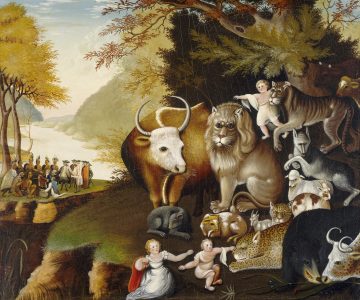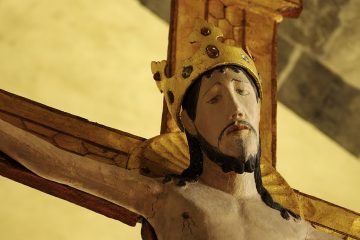Sermons
Archive for those Thoughts for the Month that were homilies or sermons preached to our congregations either used in full or posted as extracts and linked to PDFs of the whole sermon.

Below are two extracts from Rev Sheila Cameron’s sermon on Ash Wednesday, 22 February 2023, when our readings had included Isaiah 58:1–12 and John 8:1–11.
We are all beloved children of God, but we must “participate in our own redemption.” Today, at the beginning of Lent, our liturgy invites us to enter the darkness of our sin, to recognize it for what it is and face the pain it has caused ourselves and others. We may find consolation in the thought that our sins are perhaps less extreme than other people’s but so, of course, did those preparing to stone the woman caught in adultery. It’s not our business to feel holier than others and to cast stones at others, but to know that our nature is flawed and reflect on our own shortcomings.
…
Isaiah warns us not to pay mere lip-service to our liturgy this morning, for receiving ashes on our faces will do us no good at all if our hearts are hardened towards the needs of those around us. We are entering what our liturgy calls a “desert of repentance,” forty days of reflecting on how we might be God’s people once again. This, we’re told, is a journey of discovery, “a pilgrimage of prayer and discipline” through which we hope to reconnect with the God we have offended by our sinfulness and our disregard for the welfare of others.
The promises of renewal are there in our reading from Isaiah: the promise of light breaking into our darkness like the dawn, of healing springing up quickly, of the glory of God shielding and protecting us. In this place of contrition, our prayers will be answered, for God never disregards a cry from a broken and a contrite heart. We wait sorrowfully and yet expectantly, and it’s best if we don’t anticipate anything precise, for when the light comes it will certainly arise in unexpected places.
Do read the whole sermon, which is available at this link, if only to read the first illustration! Sheila ended quoting and commenting on sections of Louis Untermeyer’s poem, Ash Wednesday, which you can read in full on-line at this link.
Our picture is the one taken by our friend Liz Crumlish to accompany the Ash Wednesday 2023 thought on her blog, and can be seen in context at this link.

On the Second Sunday of Advent we are reminded that a fundamental change of heart is necessary if we are to experience the coming of God’s peaceable kingdom. This change of heart is repentance, without which participation in God’s kingdom will not be possible. Matthew’s Gospel reminds us of the need to repent now.
There’s an urgency in the call of John the Baptist; the rule of God is about to break upon the world; the words of the prophets are about to be fulfilled. John’s appearance, the way he dresses and the way he behaves, quite deliberately recall the prophet Elijah. John is a new prophetic voice after centuries of silence, of patient waiting for God to act anew, and the people respond to him in large numbers.
Everyone, even the religious leaders, is eager for some new thing to set them free. It’s very important that even the most religious people repent and don’t just rely on their position in the Synagogue as evidence of their righteousness, for God’s coming activity will involve judgement as well as redemption and none will be exempt. The call must be to stop where you are and turn back to God.
This is an extract from Sheila Cameron’s sermon on 4 December. Do read the whole of it, downloadable at this link, to see the link with the picture by Edward Hicks, which comes from the online collection of the National Gallery of Art, Washington, D.C. (https://commons.wikimedia.org/w/index.php?curid=175611)

Rev Sheila Cameron’s sermon on 20 November – on the last Sunday after Pentecost, kept as the feast of Christ the King – included this challenge …
Christ the King is the God who lived among us and shared our humanity. If we are to represent his kingdom and make it visible among us, then we must show God’s concern for those who struggle in this world: the poor, the lonely, the rejected, the vulnerable and the suffering. Our reading from Jeremiah 23:1–6 speaks of shepherds who have failed – evidently kings and leaders who let the people down by not protecting or nurturing them, perhaps pursuing personal ambition or the desire for power or wealth. The sheep have been scattered and have become prey to wild animals.
What are the hazards that threaten today’s flocks? Country folk know that shepherds are experts in the ways of sheep, aware of all the dangers they may encounter and the diseases that may afflict them, which suggests to me that Christians should be experts in the ways of the world if they are to reach out to others as Christ did, with courage and empathy, and also taking the same kind of risk that led to his suffering and death on the cross. Are we up to that challenge, prepared to live sacrificially, as we must be if we are to be effective shepherds in today’s world?
Do read the whole of Sheila’s sermon at this link.
Our image was taken in June 2021, and comes from the collection Triumph crucifixes in Gotland by Bene Riobó, CC BY-SA 4.0, via Wikimedia Commons.